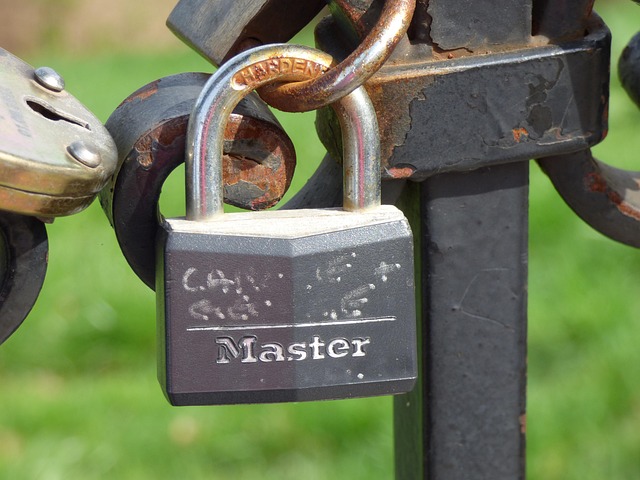In Missouri, including St. Louis, hazing and sexual assault are taken seriously under state law. Survivors can seek legal counsel from a hazing abuse lawyer St. Louis MO to understand their rights and connect with specialized attorneys who navigate complex justice systems. These lawyers guide clients through evidence review, testimony gathering, criminal charges, civil lawsuits, and campus disciplinary actions, ensuring survivors' rights are protected. Choosing an attorney with expertise in personal injury and civil rights law is crucial for a successful case. Survivors should document evidence, contact a reputable lawyer, and remember their right to privacy and control over their narrative. Local organizations like RAINN provide support, while legal counsel ensures justice and compensation, helping survivors heal and create safer environments.
“Surviving hazing or sexual assault is a challenging journey, but understanding your legal rights can provide crucial support. If you’re based in St. Louis, Missouri, knowing the state’s laws regarding these issues is essential. This article guides survivors through the complex process, offering insights into their rights and available options.
We’ll explore key aspects, including finding the right hazing abuse lawyer in St. Louis MO to represent your case effectively. By understanding the legal landscape, survivors can take proactive steps towards healing and justice.”
Understanding Hazing and Sexual Assault Laws in Missouri

In Missouri, including St. Louis, hazing and sexual assault are taken very seriously under state law. Understanding these laws is crucial for survivors seeking justice and support. Hazing, often associated with fraternities or youth organizations, involves any act that endangers or causes physical or mental harm to an individual within a group dynamic. This can include humiliating, abusive, or dangerous activities designed to initiate or welcome new members. Such actions are illegal and victims may seek legal counsel from a hazing abuse lawyer St. Louis MO to understand their rights and options.
Sexual assault, on the other hand, refers to non-consensual sexual contact or behavior. Missouri has strict laws against this, with penalties ranging based on the severity of the crime. Survivors of hazing or sexual assault in St. Louis should know that they have legal recourse and can connect with specialized attorneys experienced in these areas to navigate the complex justice system.
The Rights of Survivors: What to Expect From Legal Advice

Survivors of hazing and sexual assault in St. Louis, MO, have rights and legal protections. When seeking legal advice from a specialized hazing abuse Lawyer St. Louis MO, individuals can expect support tailored to their unique circumstances. This includes understanding their options for legal action against perpetrators or institutions responsible for the harm they experienced.
The process involves reviewing evidence, gathering testimonies, and navigating complex legal procedures. Legal professionals in this field are equipped to guide survivors through criminal charges, civil lawsuits, and campus disciplinary actions. They ensure that clients’ rights are protected, providing a safe space to share their stories and pursue justice for the trauma they have endured.
Choosing the Right Lawyer in St. Louis for Your Case

Choosing the right legal representative is a crucial step for any survivor seeking justice. When it comes to hazing abuse and sexual assault cases in St. Louis, MO, there are several factors to consider when selecting a lawyer. Firstly, look for attorneys specializing in personal injury or civil rights law who have experience handling similar cases. This expertise ensures they understand the complexities of these sensitive issues and can navigate the legal system effectively on your behalf.
Reputation and track record are also vital indicators. Research lawyers who have successfully represented survivors in hazing abuse lawsuits, as this demonstrates their commitment to this field. The best lawyer for your case is someone who actively advocates for victims’ rights, stays updated on relevant laws and court decisions, and provides personalized support throughout the legal process.
Navigating the Legal Process After an Incident

After experiencing hazing abuse or sexual assault, survivors in St. Louis, MO, often face a challenging journey to seek justice and healing. Navigating the legal process requires careful steps and understanding one’s rights. The first crucial move is to document all evidence related to the incident—this could include medical records, witness statements, and any digital traces of the abuse. It’s essential to contact a reputable hazing abuse lawyer in St. Louis who specializes in these cases for guidance on the legal options available.
They can help survivors understand the criminal and civil justice systems, file complaints against perpetrators or institutions responsible, and advocate for their rights. Survivors should remember that they have the right to privacy and control over their narrative during this process. A qualified lawyer will ensure that all procedures are followed properly, protecting the survivor’s best interests throughout.
Support Resources Available for Survivors in St. Louis MO

Survivors of hazing and sexual assault in St. Louis, MO, are not alone. There are numerous support resources available to help them navigate their journey towards healing. Local organizations like the Rape, Abuse & Incest National Network (RAINN) offer confidential hotlines, support groups, and online resources tailored to assist victims of these crimes. Additionally, many community centers and hospitals provide counseling services and safe spaces for survivors to share their experiences and begin their recovery process.
Seeking legal counsel from a qualified hazing abuse lawyer in St. Louis MO can also be a vital step. These professionals have the expertise to guide survivors through complex legal systems, ensuring they receive justice and compensation for the harm they’ve suffered. With their help, victims can take proactive measures against their perpetrators, fostering a safer environment for themselves and others.






